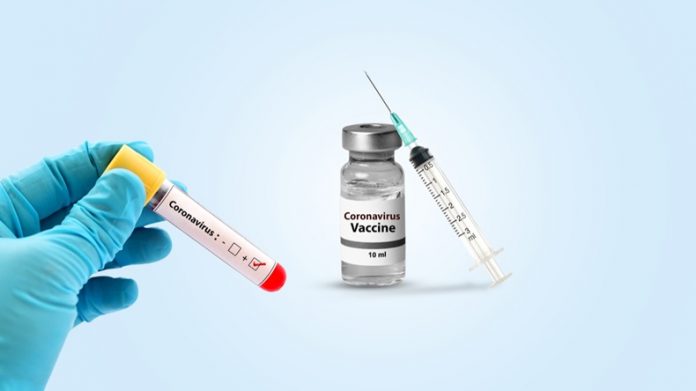This article is written by Ajay Shukla, a BA.LLB (Hons.) student at Amity Law School, Delhi (Affiliated to GGSIPU, New Delhi)
Table of Contents
Introduction
We are at war, the enemy is invisible, we are trying to fight back but we don’t have the required weapons yet. Doctors, nurses and other medical staff along with our municipality workers risk their lives everyday by going out and helping us with their services.
Several months have passed since the first case of coronavirus was reported in Wuhan, China, at the time of writing this article India has a total of around 2.7 million positive cases (MoHFW, Govt. of India), with no end in sight the only weapon we can equip ourselves with against the virus is a working “vaccine”.
For a vaccine to reach us it needs to go through various medical trials, in this article we will cover various legal frameworks which play a role in regulating these trials, procedure for speedy approvals and the role of “Intellectual Property Law”, which might play a key role in securing a foreign vaccine for our population.
The Central Drugs Standard Control Organisation (CDSCO)
The rules for vaccine and drug trials are framed by the CDSCO under Directorate General of Health Services it is also responsible for granting approval to drugs and vaccines which clear all the trial phases as prescribed by the CDSCO and Ministry of Health & Family Welfare, Government of India, Its headquarters is at New Delhi and it has six zonal offices, four sub zonal offices, thirteen port offices along with seven laboratories spread across the country, as per CDSCO’s official website it has the following functions :
- “The Drugs & Cosmetics Act,1940 and rules 1945 have entrusted various responsibilities to central & state regulators for regulation of drugs & cosmetics. CDSCO has a responsibility to uniformly implement the provisions of the Act & Rules made there under for ensuring the safety, rights and well-being of the patients by regulating the drugs and cosmetics. CDSCO is constantly thriving upon to bring out transparency, accountability and uniformity in its services in order to ensure safety, efficacy and quality of the medical product manufactured, imported and distributed in the country.
- Under the Drugs and Cosmetics Act, CDSCO is responsible for approval of Drugs, Conduct of Clinical Trials, laying down the standards for Drugs, control over the quality of imported Drugs in the country and coordination of the activities of State Drug Control Organizations by providing expert advice with a view of bring about the uniformity in the enforcement of the Drugs and Cosmetics Act.
- Further CDSCO along with state regulators, is jointly responsible for grant of licenses of certain specialized categories of critical Drugs such as blood and blood products, I. V. Fluids, Vaccine and Sera.”
The necessary procedure which every potential drug or vaccine needs to undergo before coming into the market for general use.
The Union Ministry for Health and Family Welfare notified the Drugs and Clinical Trials Rules in 2019 aiming to promote clinical research adhering to International Standards in the Country. The new rules changed the existing regulatory landscape for the approval of new drugs and the process to conduct clinical trials in the country.
These rules have the following applicability
- all new drugs,
- ethics committee and
- investigational drugs applicable for human use, bioequivalence studies and clinical trial in India.
As per the Second Schedule of the Drugs and Clinical Trials Rules, 2019, for any permission to import or manufacture new drug/vaccine, for sale or to undertake clinical trials under the rules, an application shall be made to the Central Licencing Authority accompanied with following data:
- Chemical and pharmaceutical information
- Animal pharmacology data
- Animal toxicology data
- Human clinical pharmacology data
- Regulatory status in other countries as prescribed including information in respect of restrictions imposed. If the drug has been withdrawn in any country by the manufacturer or by regulatory authorities, such information should also be shared.
- The full prescribing information
- All package inserts, promotional literature and patient education material subsequently produced are required to be consistent with the contents of the approved full prescribing information.
- Complete testing protocol for quality control testing together with a complete impurity profile and release specifications for the product.
- In case the application is for the conduct of clinical trials as a part of multi-national clinical development of the drug, the number of sites and patients, as well as the justification for undertaking such trials in India, should be provided to the Central Licencing Authority along with the application.
Conditions for Human clinical pharmacology data
- For a new drug substance which are discovered or developed in India:
All the clinical trials are required to be carried out in India beginning from Phase I and data should be submitted as prescribed by the rules
- For a new drug substance discovered or developed in a country other than India (outside India):
Phase I data has to be submitted along with the application. After submission of Phase I data generated outside India to the Central Licensing Authority, permission may be granted to repeat Phase I trials or to conduct Phase II trials and subsequently Phase III trial concurrently with other global trials for that drug. For a drug going to be introduced for the first time in the country, Phase III trial may be required to be conducted in India before permission to market the drug is granted unless otherwise exempted
- The data required will depend upon the purpose of the new drug application
The number of study subjects and sites to be involved in the conduct of clinical trial will depend upon the nature and objective of the study. Permission to carry out these trials shall generally be given in stages, considering the data emerging from earlier phases
What are Clinical Trials?
According to the definition clause of the New Drugs and Clinical Trials Rules, 2019 by the Ministry of Health and Family Welfare clinical trials have the following definition:
“2(j) “clinical trial” in relation to a new drug or investigational new drug means any systematic study of such new drug or investigational new drug in human subjects to generate data for discovering or verifying its,- (i) clinical or; (ii) pharmacological including pharmacodynamics, pharmacokinetics or; (iii) adverse effects, with the objective of determining the safety, efficacy or tolerance of such new drug or investigational new drug”;
Hence, we can say that it is a systematic study to get data for possible effects or adverse effects of various drugs or newly discovered drugs on humans. A way to establish the safety and efficacy of a drug before it is introduced to the general public for use. It is very important as it helps to identify the aim, benefits and risk of any drug and also checks the scientific standards and ethical grounds.
Various Phases of Clinical Trials
To get approval for usage of any drugs or vaccine it needs to clear various phases of clinical trials as prescribed by the New Drugs and Clinical Trials Rules, 2019, these trials are carried out in four different phases with each phase holding its own unique importance. Drugs which are developed in India need to go through all four phases before getting approval. The various phases can be summarised as follows
- Phase I trials: The aim of this phase is to see if the experimental “drug” or “compound” is tolerated in the human body in the same way as expected. A small number of healthy, informed volunteers are given the drug (minimum 2) with doctors closely supervising and monitoring the process.
- Phase II trials: This phase increases the scope of the trials and the drug is administered a larger number of people (10-12 or more) in more than 3 or 4 centres. This phase is carried on to check for any side effects.
- Phase III or confirmatory trials: These are large scale tests carried out in large number of informed volunteers, generally performed in comparison with a drug or placebo. Generally, there are 1000- 3000 subjects or more, with favourable results in this phase the manufacturer can apply for a commercial licence to market the drug. The application is made according to the provisions of the New Drugs and Clinical Trials Rules, 2019.
- Phase IV trials or post-marketing phase: This is a surveillance phase where medicine is given to doctors and they start to prescribe it. This is also an important phase as it can help in identifying any side effects which might have been missed in the earlier phases.
Special Circumstances where approval can be granted before concluding all the phases of trial
The New Drugs and Clinical Trials Rules, 2019 give some special situations which can be relevant in the present Coronavirus scenario, in these special situations deferment, relaxation or omission of data may be considered. These situations are as follows:
- “For drugs intended to be used in life threatening, or
- serious disease conditions, or
- rare diseases and for drugs intended to be used in the diseases of special relevance to Indian scenario or unmet medical need in India, disaster or special defence use e.g. haemostatic and quick wound healing, enhancing oxygen carrying capacity, radiation safety, drugs for combating chemical, nuclear, biological infliction etc.”
For the above said procedure following mechanism can be followed to expedite the approval process:
Accelerated approval process
- May be allowed to a new drug for a disease considering its severity, rare nature, spread or prevalence also taking account of the availability or lack of any alternative treatments, provided that there should be a prima facie evidence of the product being of meaningful therapeutic benefit over the existing treatment
- Post-marketing trials still needed to validate the effects
- In case where sufficient efficacy is seen with a definite dose in the Phase II clinical trial of any new drug for any unmet medical needs of serious and life-threatening disease which are spread in the country, it may be considered for grant of marketing approval by the CLA (Central Licensing Authority) based on Phase II clinical trial data.
When can a quick or expeditious review process be sought for approval of a new drug after clinical development?
- The drug is intended to treat any serious or life threatening or rare disease or condition prevalent in the country.
- If it is approved then it would provide a significant advantage in terms of safety or efficacy.
- There is substantial reduction of a treatment-limiting adverse reaction and enhancement of patient compliance that is expected to lead to an improvement in serious outcomes
Role of Intellectual Property Laws
Keeping in mind the current worldwide scenario, there are 2 situations relating to Intellectual Property Rights which might play a key role in deciding the future of a much-awaited vaccine.
- The National Governments might use a practice known as “compulsory licensing” of patents.
- They might sell the vaccine without the permission of the patent owner.
- Provisions in the TRIPS agreement
What is a Patent?
According to the World Intellectual Property Organization:
“A patent is an exclusive right granted for an invention, which is a product or a process that provides, in general, a new way of doing something, or offers a new technical solution to a problem. To get a patent, technical information about the invention must be disclosed to the public in a patent application.”
What is Compulsory Licensing?
According to the World Intellectual Property Organization:
“Compulsory licensing is when a government allows someone else to produce a patented product or process without the consent of the patent owner or plans to use the patent-protected invention itself. It is one of the flexibilities in the field of patent protection included in the WTO’s agreement on intellectual property — the TRIPS (Trade-Related Aspects of Intellectual Property Rights) Agreement.”
The Patents Act of India and Compulsory Licensing
As per Section 84, any person after the expiration of three years from the date of the grant of a patent, may make an application to the Controller for grant of compulsory licence on patent on the following grounds:
- the reasonable requirements of the public with respect to the patented invention have not been satisfied
- the patented invention is not available to the public at a reasonably affordable price
- the patented invention is not worked in the territory of India.
Also, if there is a “national emergency” or “extreme urgency”, the Controller under Section 92 of the Act can suo motu issue compulsory licenses in pursuant to a notification issued by the Central Government.
The patent owner will still retain the rights over the patent even if a compulsory license has been granted to a third party. These rights include the right to be paid for copies of the product under compulsory license. The Controller does take into account various factors public benefit and reasonability but the ultimate discretion lies with him to grant the compulsory license.
India’s first compulsory licence was granted by the Indian Patent Office to Hyderabad-based drug-maker Natco. The Hyderabad firm sold the drug at Rs 8,880/month and payed 6% of the net sales as royalty to Bayer. (see here)
Article 73 of the TRIPS agreement
The TRIPS agreement provides for various Intellectual Property measures which the countries can undertake, one of it can be useful in the present Coronavirus Scenario.
Article 73(b) of the TRIPS Agreement:
“a country can take any action which it considers necessary for protection of its essential security interests, taken in the time of war or other emergency in international relations.”
Conclusion
After an unprecedented race for a coronavirus vaccine we can finally say that we will have a vaccine for sure in the coming months, but with the arrival of a vaccine a lot of questions regarding medical, social, ethical & economic implications will arise, keeping all these questions in mind we have an existing legal framework which will help us get the vaccine as quickly and safely as possible. Apart from these, various medical and social laws will play a key role in equal and affordable distribution of the vaccine. There are laws to expedite the process of approval but safety and efficacy of any drug or vaccine has to be kept in mind before giving the final nod.
When we talk about healthcare, Intellectual Property directly affects a counties ability to manufacture medicines and that too at an affordable rate for its citizens and around the world. Luckily, India has the capability of manufacturing pharmaceutical products in bulk and that too at a very affordable price.
The Covid–19 pandemic has made various countries realise that IP Laws could affect their access to medicines and vaccines required to combat the virus but various provisions in Intellectual Property laws (in Indian and International scenario) have shown that in furtherance of health security interests of a nation strict provisions have flexible routes like suspending the grant of patent protection, and grant indemnity against enforcement actions.
LawSikho has created a telegram group for exchanging legal knowledge, referrals and various opportunities. You can click on this link and join:
 Serato DJ Crack 2025Serato DJ PRO Crack
Serato DJ Crack 2025Serato DJ PRO Crack











 Allow notifications
Allow notifications


